Further reading

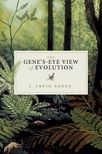

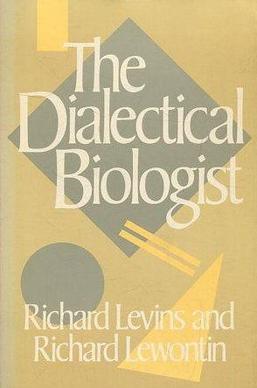

Sources
Richard Dawkins is one of the most famous biologists alive today. Before he became known for his anti-religious tirades, his most significant intellectual contribution to the world was this book: The Selfish Gene.
https://www.youtube.com/watch?v=5f-JlzBuUUU
The book argues that all of biological evolution should be understood through the struggle between genes - not individuals. And it describes this struggle as a uniquely selfish one: genes are only ever looking out for their own interests, not the good of the group or the species. Hence the title.
So even though it seems as though bees help each other to build a hive for the good of the colony, really all that is happening here is that the genes within the worker bees are helping copies of themselves reproduce through their mother - the queen. So the apparent altruism at the individual level, is revealed to be no more than a selfish one at the level of genes.
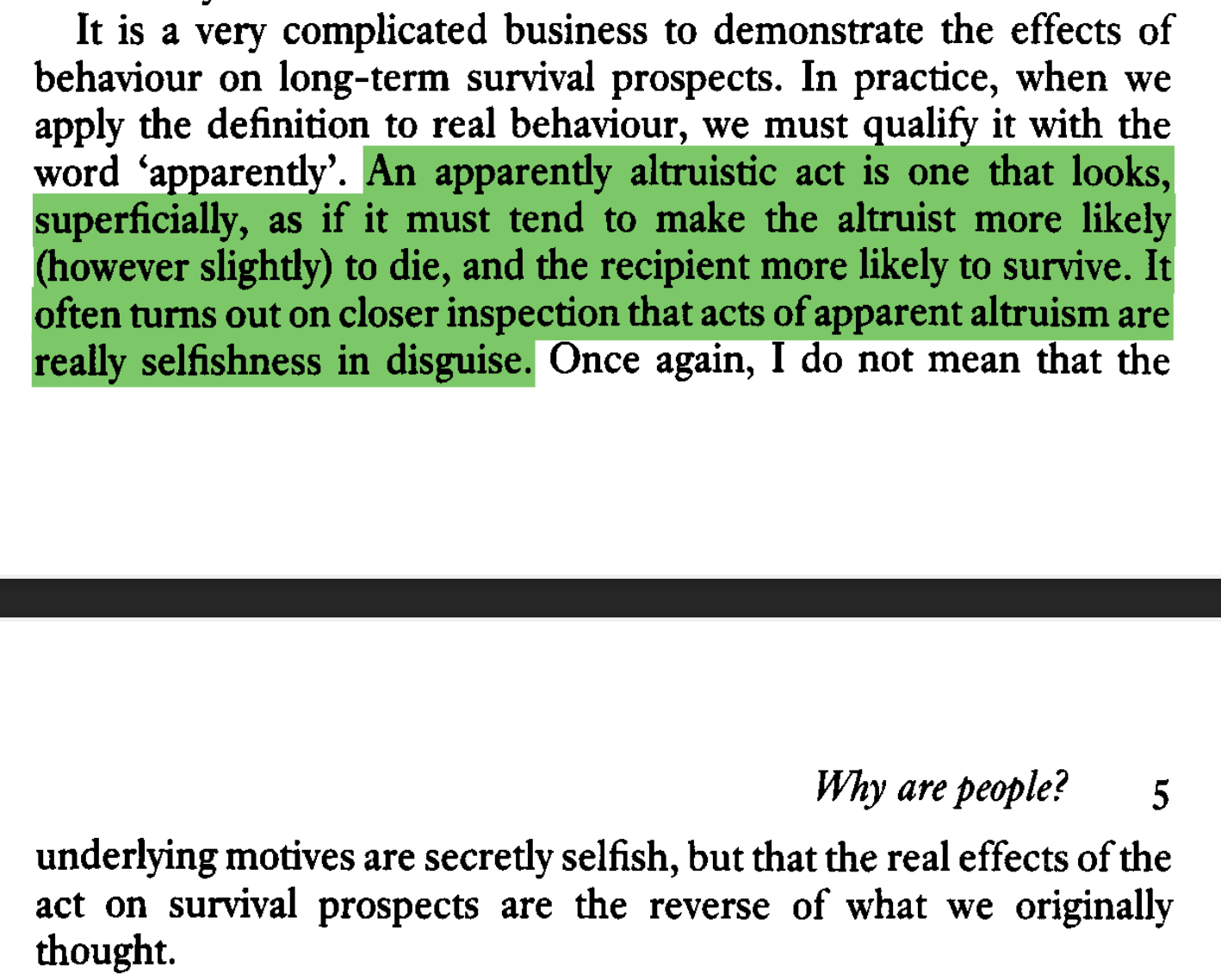
At least, that's how Dawkins sees the world.
But can all of life and evolution really be reduced down to selfish genes? And if so, does that make a unequal, capitalist society an inevitability? That’s what we’ll explore in this video, and in doing so, I hope to shed some light on the complex relationship between science and politics.
The concept at the core of The Selfish Gene is known as kin selection and it relies on the simple observation that you share just as many genes with your brothers and sisters as you do with your own children. So from a gene's eye view, helping your mother to make more of your siblings and raising them as if they were your own is just as good as reproducing and caring for your own kids.
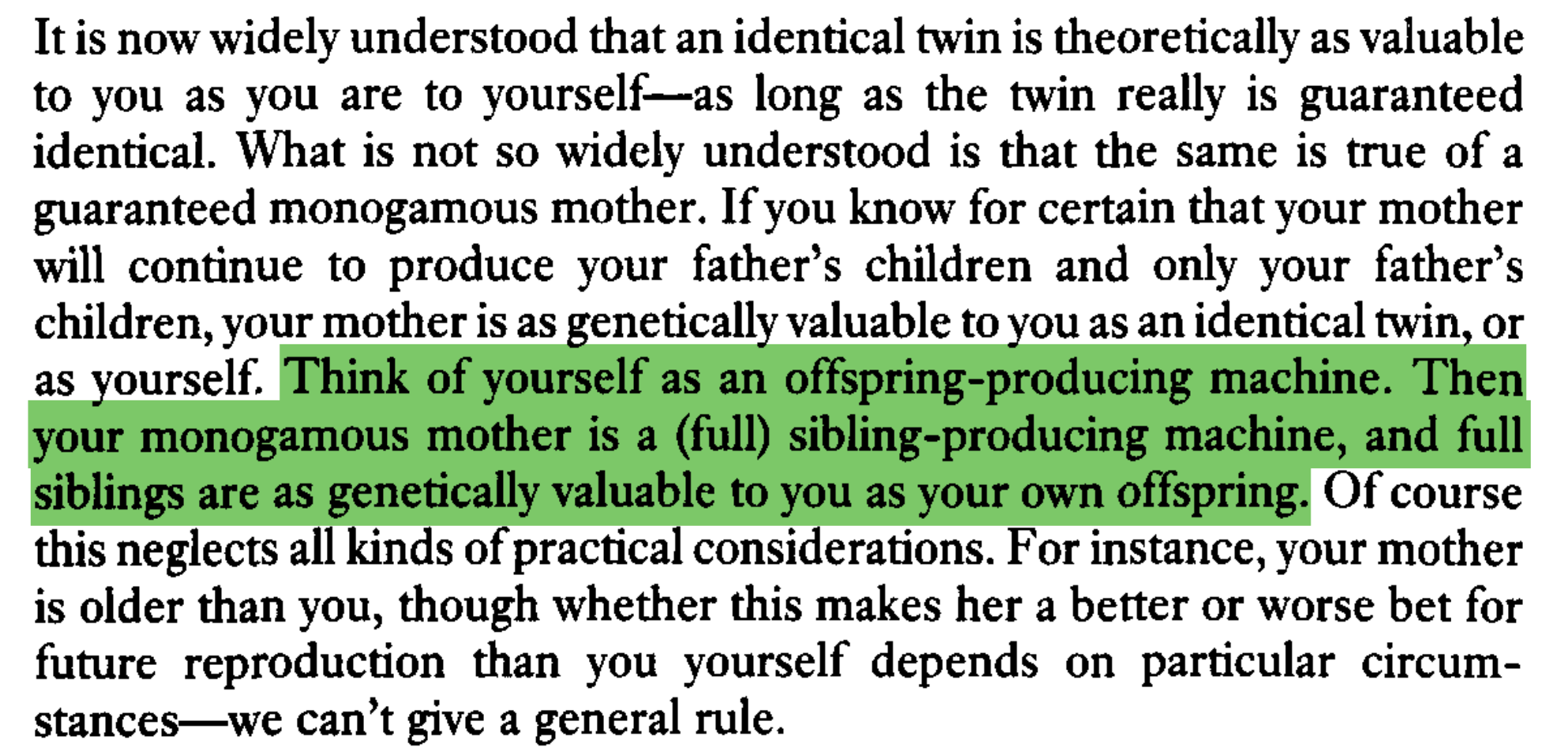
You can think of this as indirect reproduction or "reproducing through your relatives."
Dawkins argues that because of the power of indirect reproduction, the apparent altruism of individuals is really just the outcome of the selfish interests of genes.
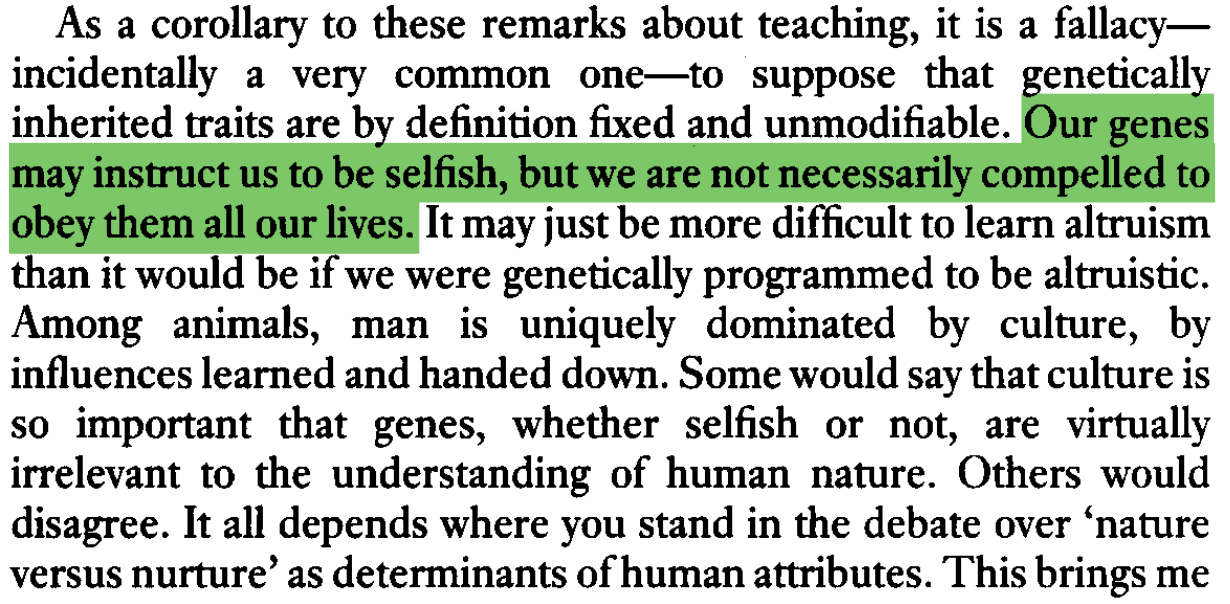
For a specific example of how this works, take vervet monkeys who give alarm calls when predators are nearby to alert the other monkeys around them. This act draws attention to themselves in order to save everyone else.
This is clearly an example of biological altruism. The brave monkey that gives the call is putting her life on the line for all the others.
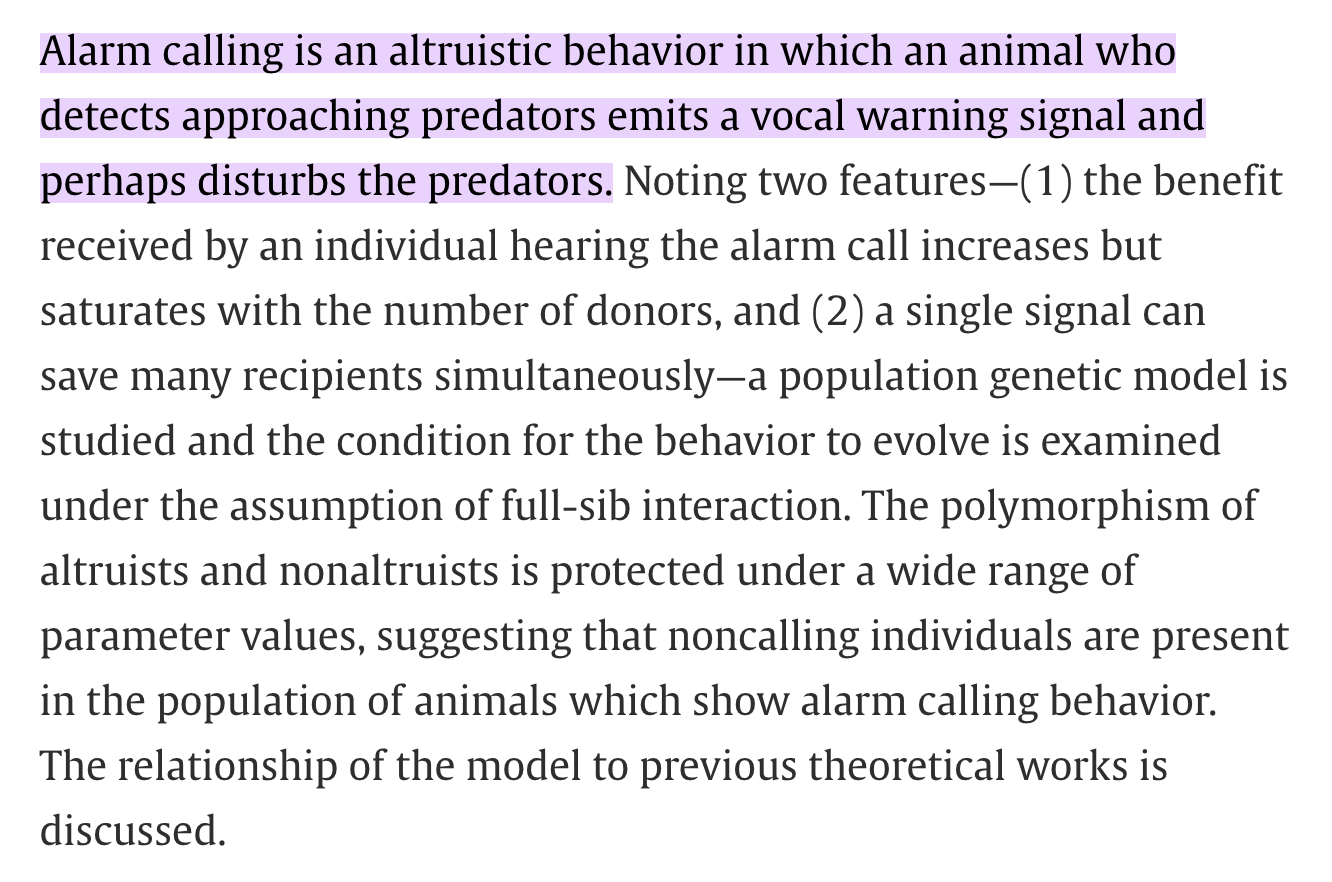
But according to kin selection theory, if the monkeys were related enough, we can reinterpret this behaviour in quite a different way. From the gene’s eye view, we can see that some of the monkeys contain the gene for alarm calling and some don’t.

And if one monkey gives an alarm call in a group of highly related monkeys, it is likely that she will save several copies of the gene even if she dies. So the gene is really just acting selfishly to maximise the number of copies of itself that exist. It’s no longer an altruistic behaviour of monkeys acting for the good of the group.
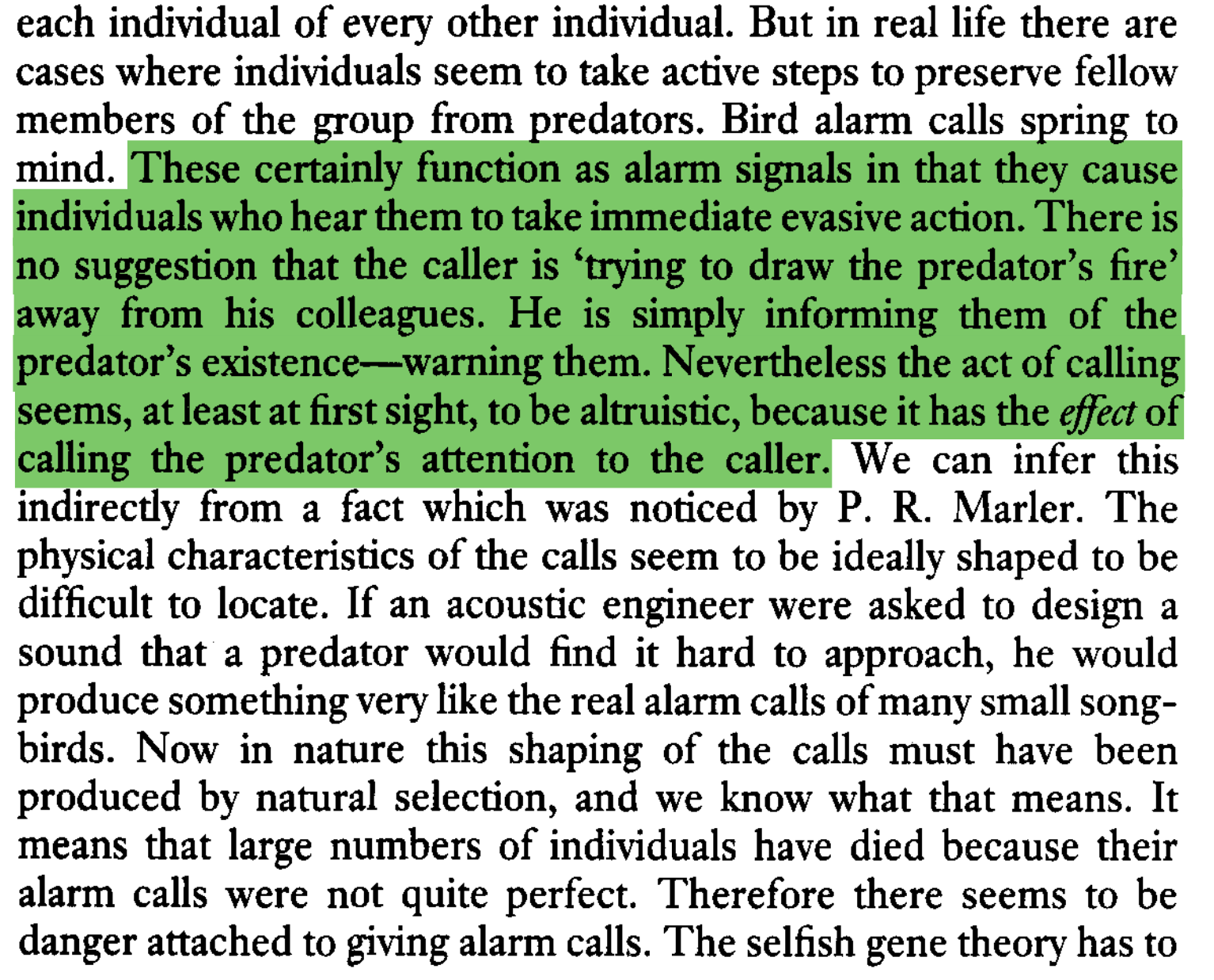
Dawkins therefore concludes that “pure, disinterested altruism … has no place in nature.”
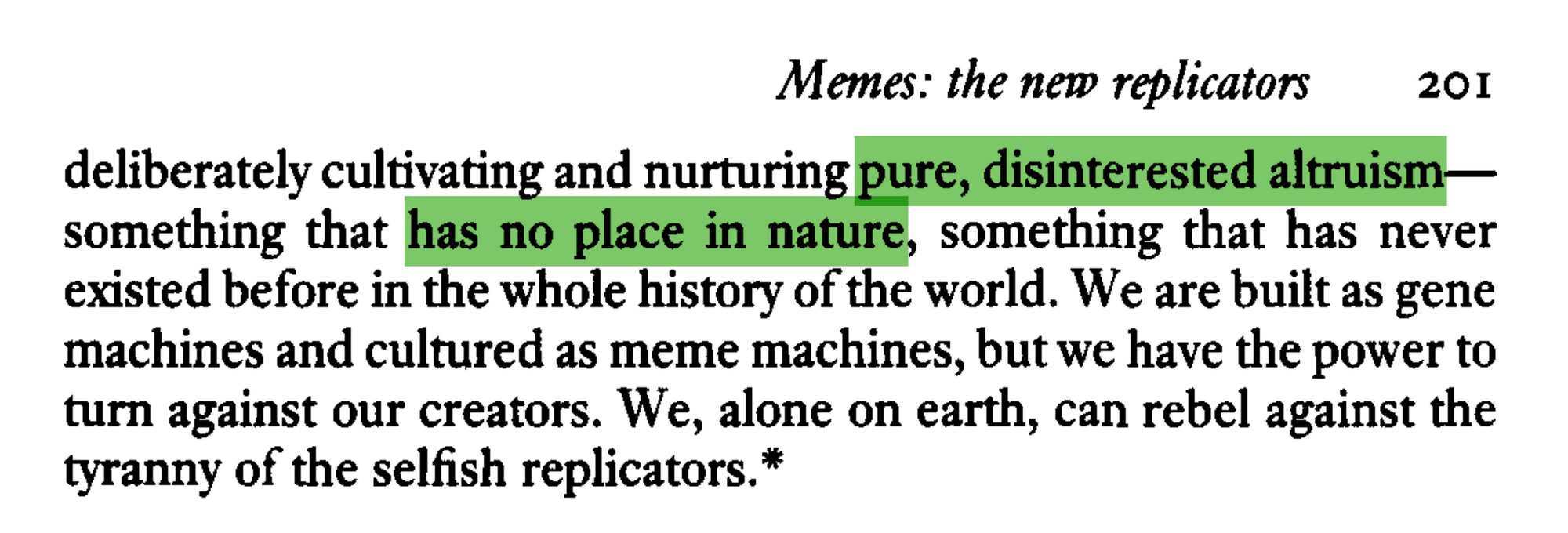
The implications of all this on human nature didn't go unnoticed. Dawkins later wrote that one of his foreign publishers couldn't sleep for three days after reading the book because he was "so troubled by what he saw as its cold bleak message."
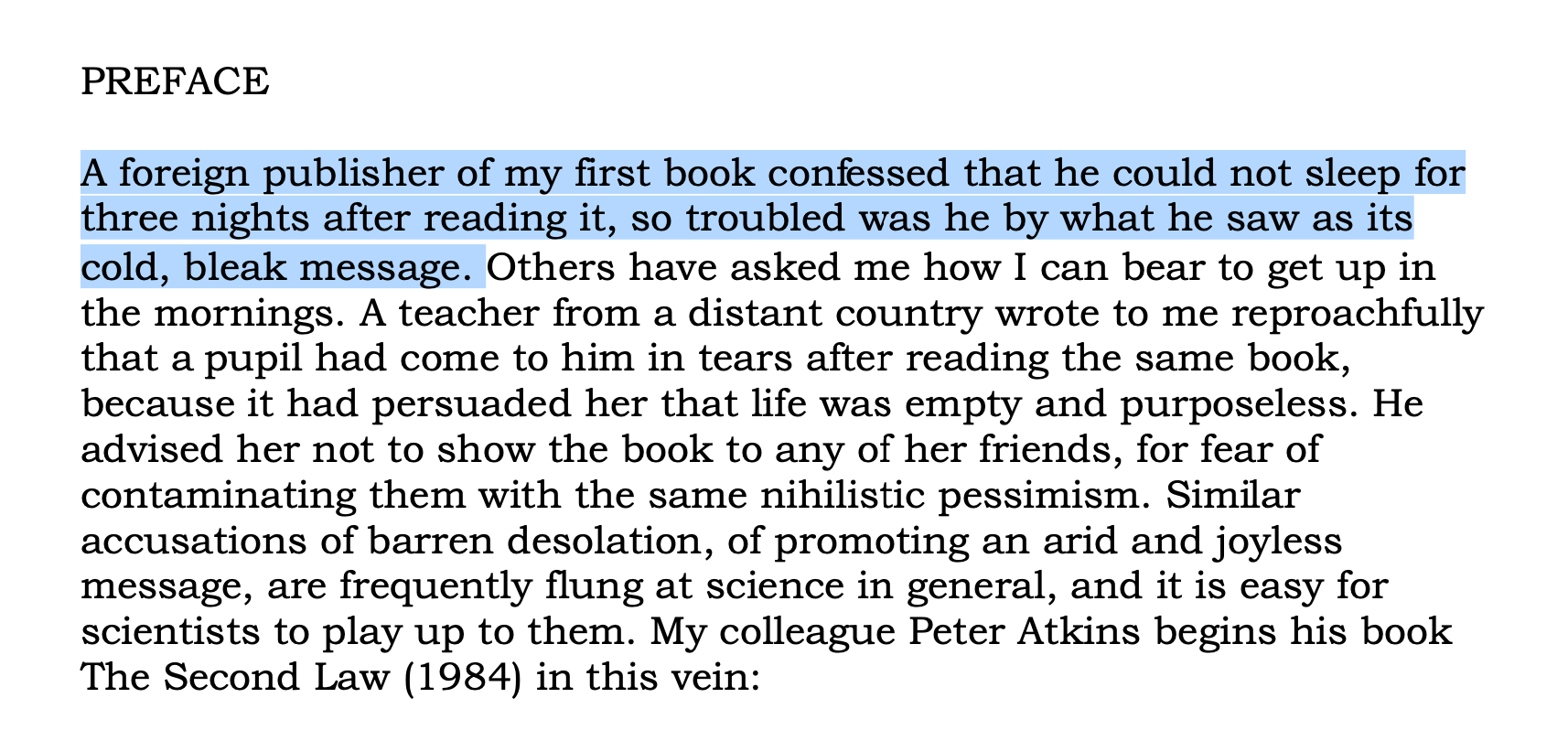
Many also accused Dawkins of indirectly supporting Thatcher's individualistic and conservative politics of the time, by painting biological organisms (and therefore humans too) as innately selfish.
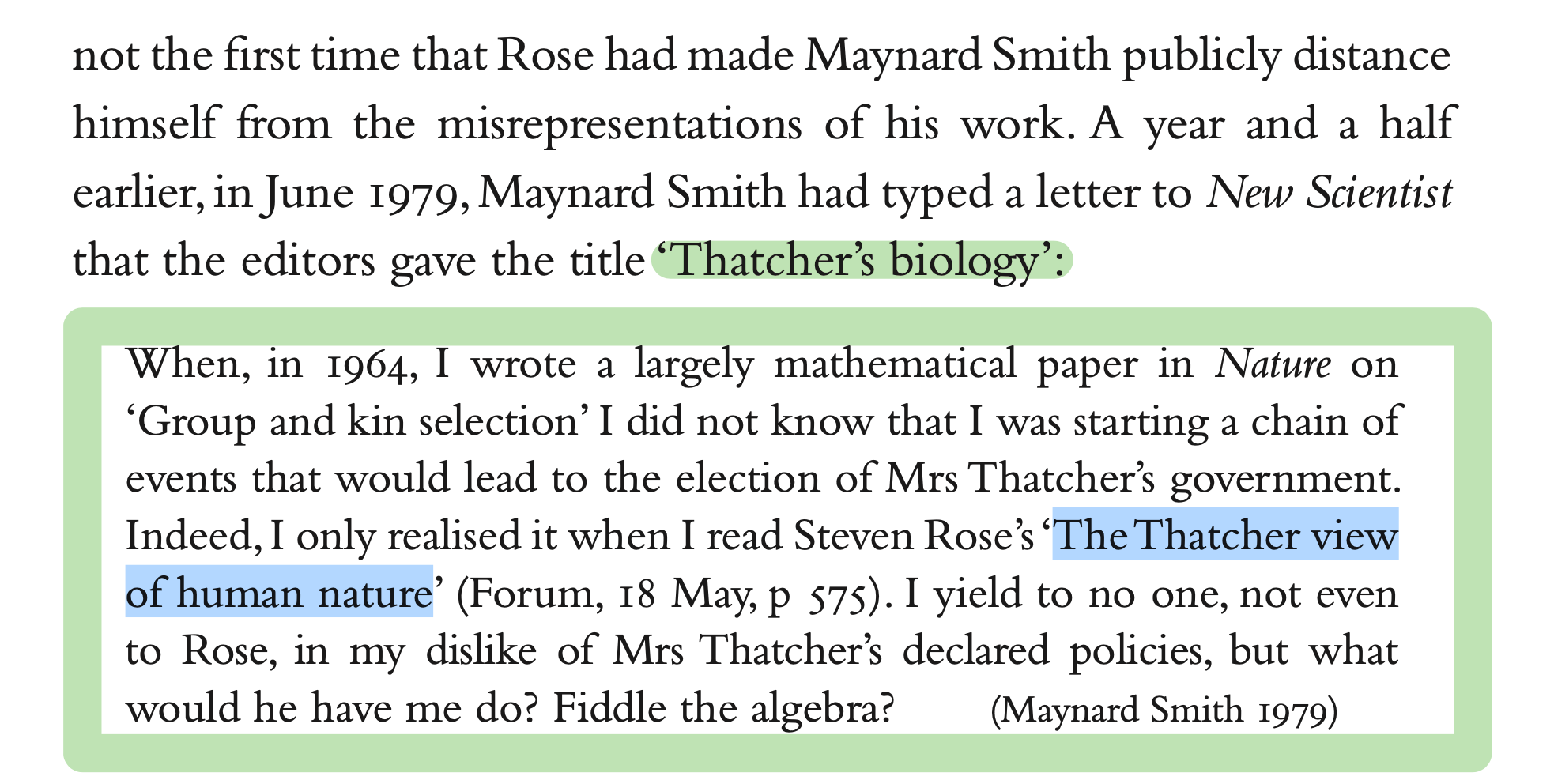
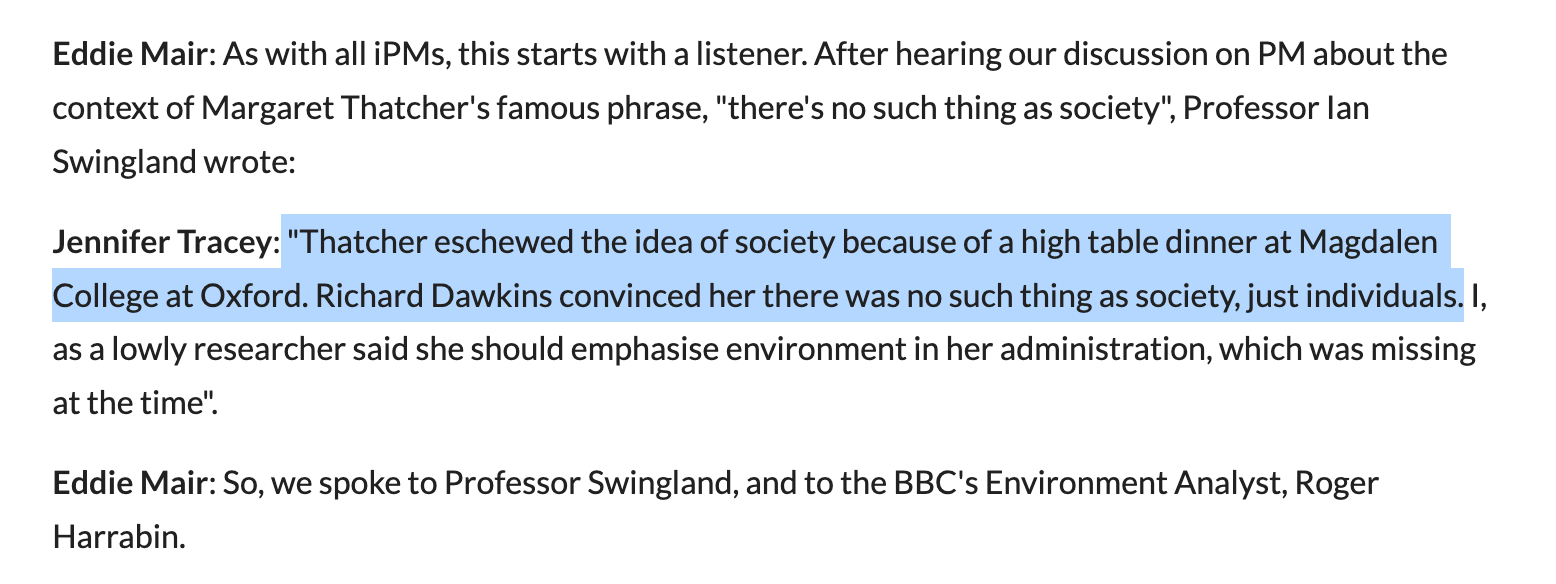
Nazis were also worryingly supportive of the book's message, writing in a far-right magazine:
For us, as racial nationalists, [The Selfish Gene] is an important vindication of our position. … What the evolutionary theoreticians [like Dawkins] have shown us is that the only type of social organization which can evolve, let alone work, is one based upon kinship, upon the ties of blood and of race.
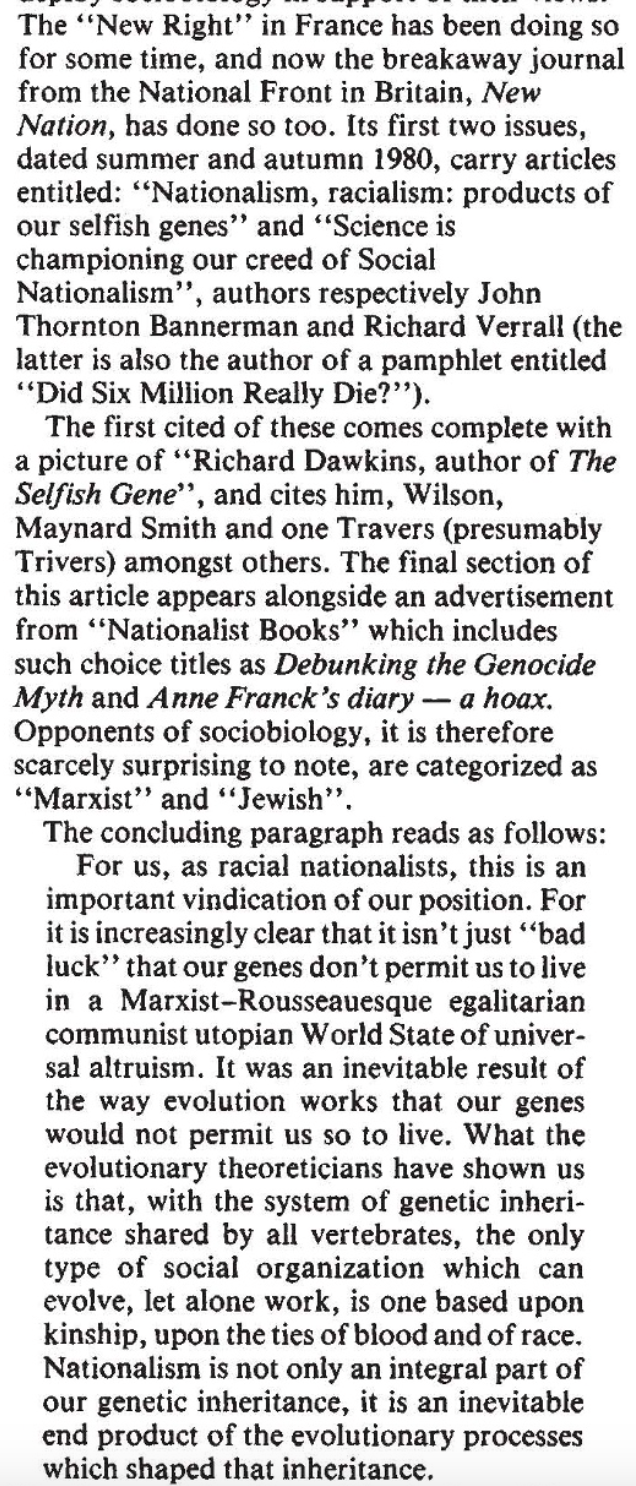
Oh dear. For context, there was also a picture of Dawkins at the top of the article and one of the authors also wrote a pamphlet titled “Did Six Million Really Die?” So there’s no doubt about the connection there.
If you ever notice that your work gets supported by Nazis, it's probably a good sign that you should reconsider the broader political implications of what you're working on.


Needless to say, Dawkins is no Nazi, so how then does he justify the political implications of his book?

In order to shield himself from Nazi association, Dawkins draws on one of the big ideas of Scottish philosopher, David Hume known as the is-ought problem and its related descendant - the fact-value distinction.

In short, it states that no matter how many facts you give me, I can't directly get to a value judgement without some extra explanations.
Take the sentence: "Murder causes suffering to the victim, therefore it is wrong"
If we separate this out, we can see that there’s a jump from a factual statement (murder causes suffering) to a value judgement (murder is wrong). And what gets hidden is the bridging statement: causing other humans to suffer is wrong.
Obviously that's a pretty reasonable assumption to make, but sometimes the bridging explanations are more controversial. Is everything that is illegal morally wrong? Is the Bible the source of morality?
Regardless of whether we agree with them or not, it’s additional explanations like these that are required to logically go from factual statements to value judgements.
Dawkins uses Hume’s fact-value distinction to defend the moral outlook that The Selfish Gene gives about the world. He claims that his book only describes facts of evolution and therefore says nothing about morality.
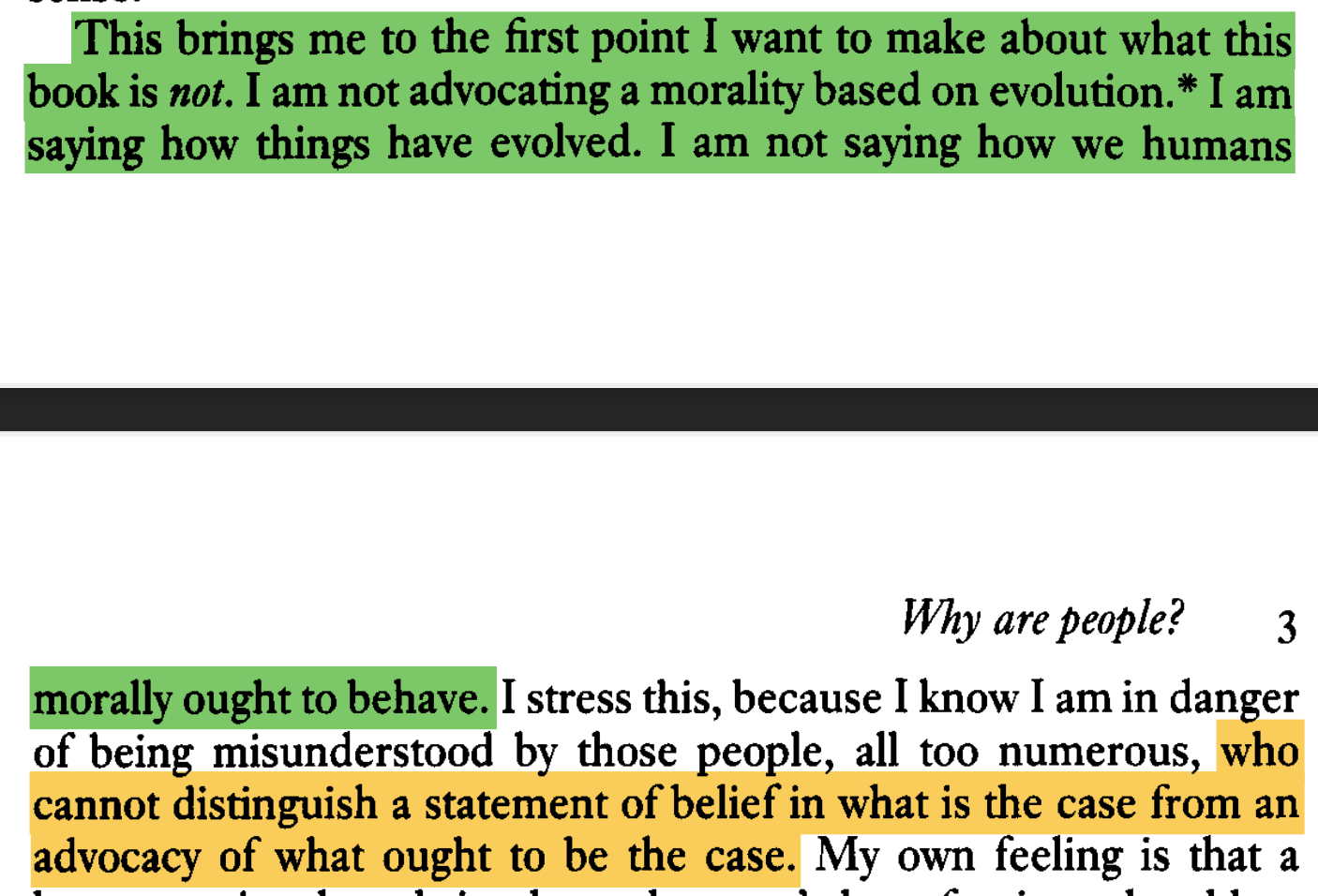

Also I realised this after editing, but seemingly after advocating that is's and ought's are different categories of statements in the paragraph above, he moves to an ought statement a couple sentences later saying that we should teach altruism since we "can expect little help from biological nature" (a very Hobbesian argument as Mary Midgley has described in The Solitary Self). This is moving from an is to an ought!
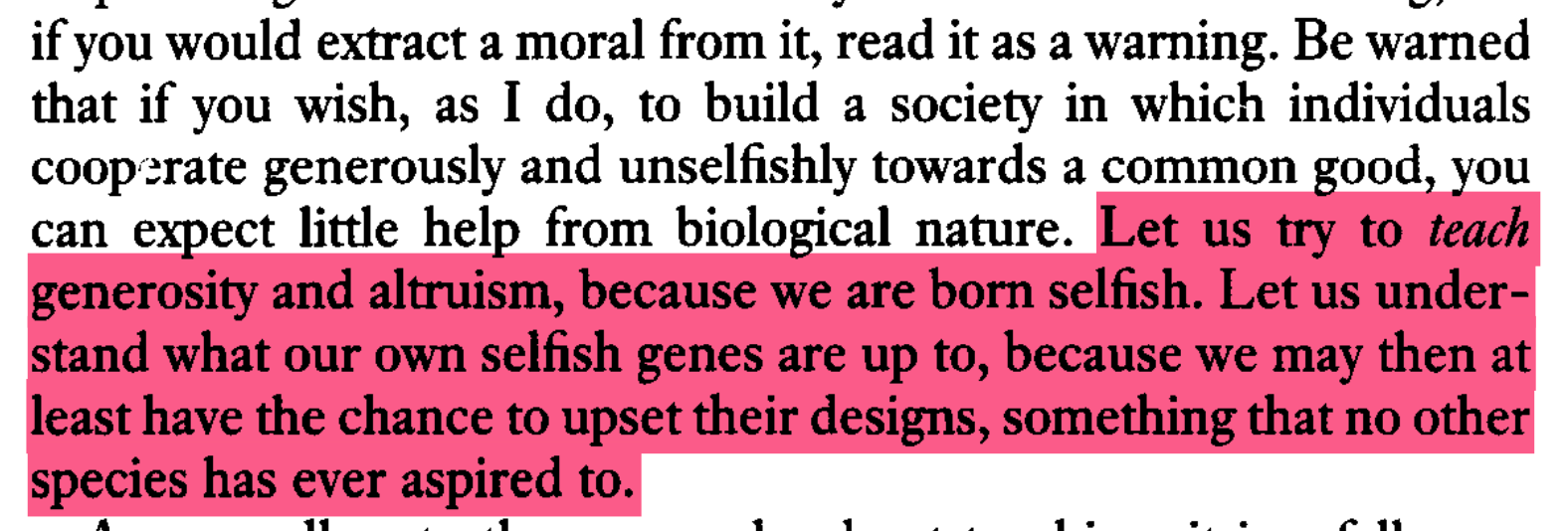
And extending this line of logic a little further you get a similar justification of authority and law (presumably since otherwise we'd all be fighting each other to death). Again, this is reflective of Hobbes' (and T. H. Huxley's) delight in the phrase "nature red in tooth and claw" which Dawkins likes:


So even though his world is full of selfish genes and only has "blind, pitiless indifference" toward the suffering of organisms, that has nothing to do with the world we should want.
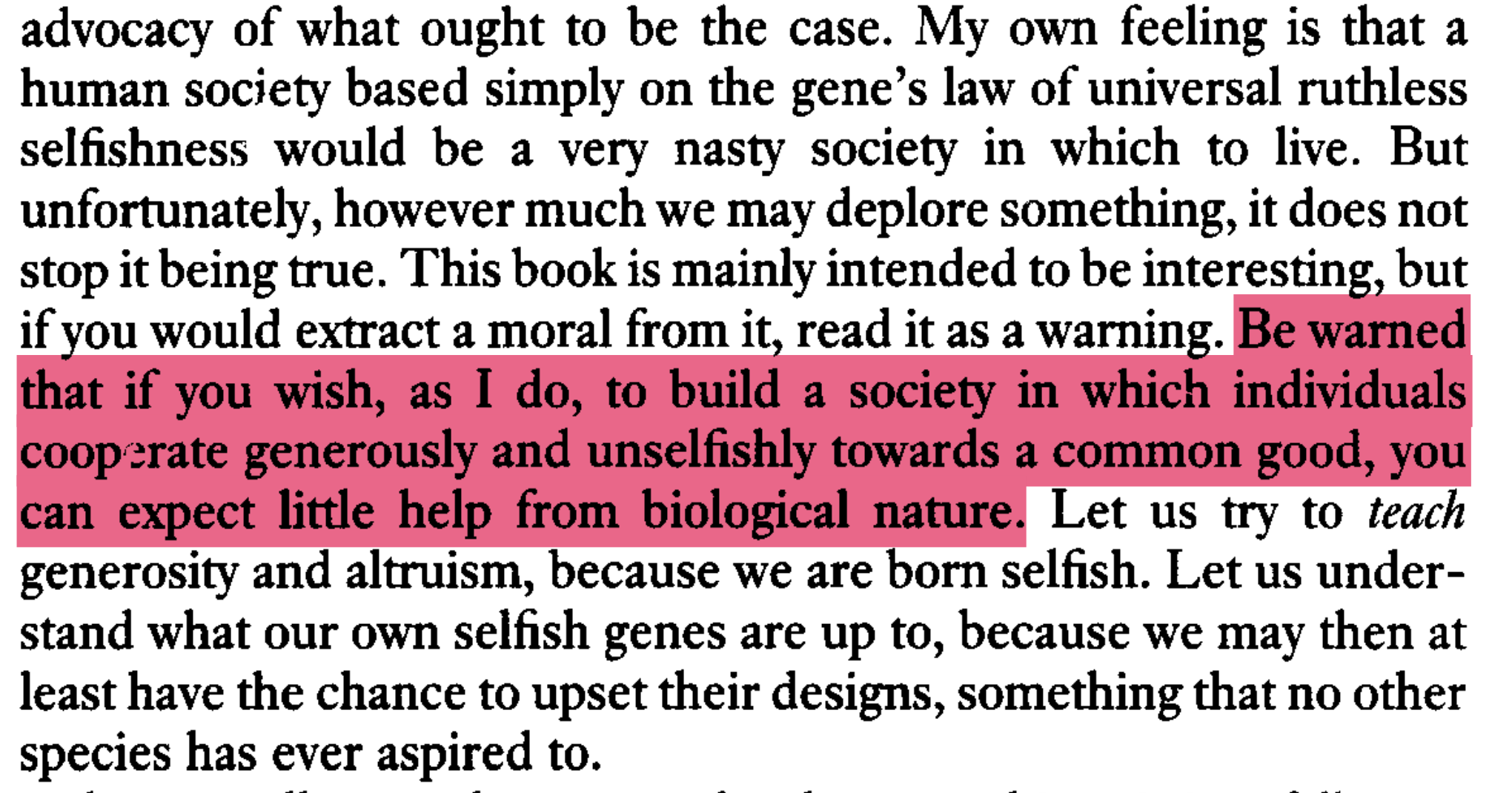
Also this argument only makes any sense if you believe that we humans are somehow fundamentally different from nature. Dawkins is essentially positing two different sets of rules for biology. Nature is selfish and has to obey it's selfish programming, but we humans somehow have agency to overcome these selfish tendencies. Where on Earth does this come from? Are we really that different from other organisms?

This is argument also goes back to Descartes positing that humans are the only creatures that have souls and all other life are just mindless automata.

I wanted to mention this in the video, but it didn't end up making the final cut. Plus it's a digression into agency and free will and consciousness, all of which are complex topics. Easier to just shave it off into future videos.
But a huge number of Dawkins readers ignored this subtlety on this and began to draw moral conclusions based off of The Selfish Gene. And who's to blame them making this jump? Dawkins' metaphor of 'selfish genes' really sticks in your mind and it's pretty hard to avoid making a connection to morality.
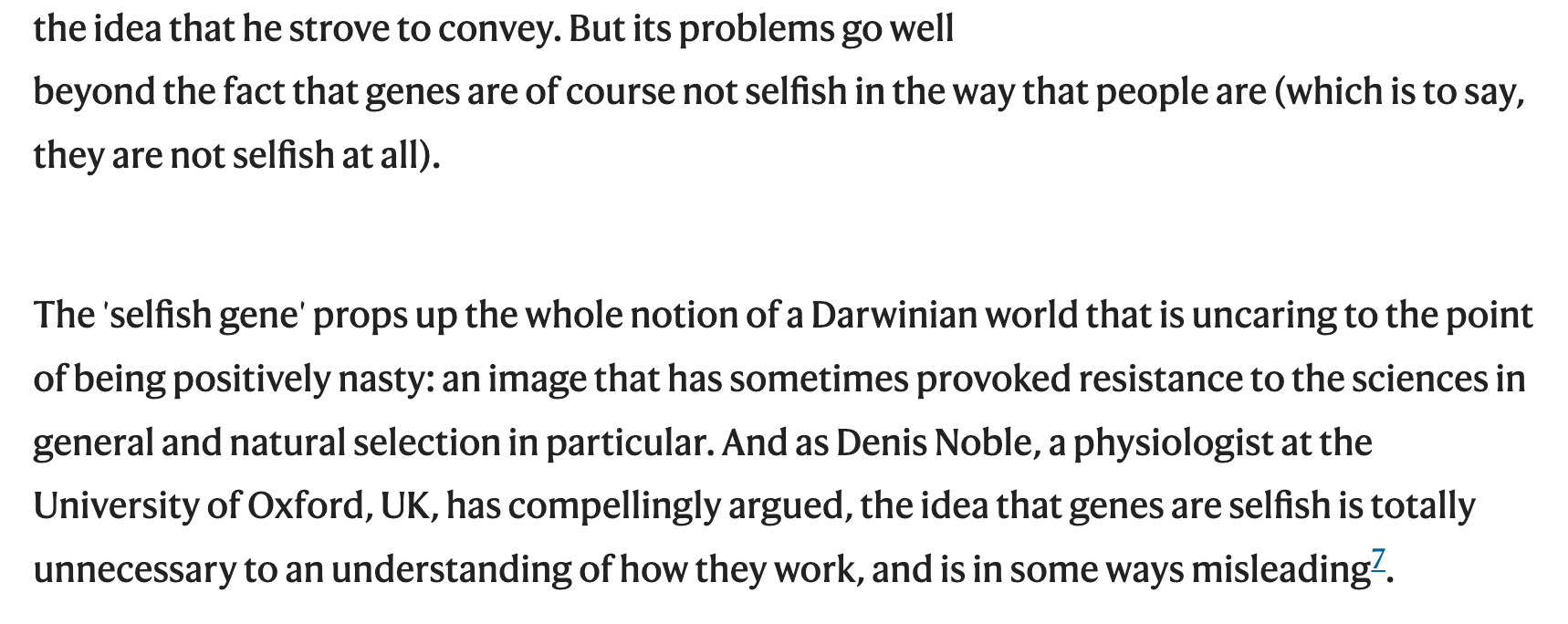
Defenders of The Selfish Gene have therefore had to account for its implied morality, even if Dawkins wanted to keep these issues separate. One such commentary was given in 2021 by biologist Arvid Ågren who wrote a book evaluating the gene's eye view of evolution in a more modern context.

While I thought the vast majority of the book was really good, there was one sentence that really struck me as odd:
Our commitment to the science of evolution says nothing about our moral outlook.
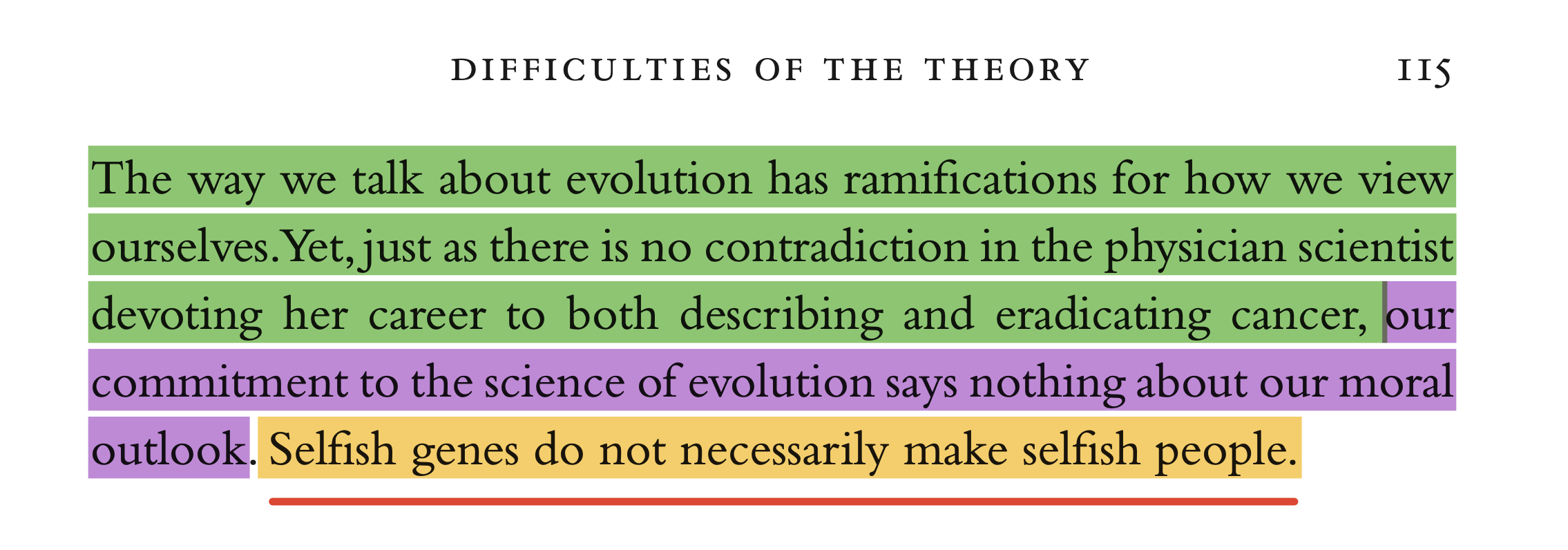
This is a much more potent claim than a simple fact-value distinction.
In Hume's original articulation, all he is saying is that to pass from a fact to a value, you need additional assumptions that have to be explained.
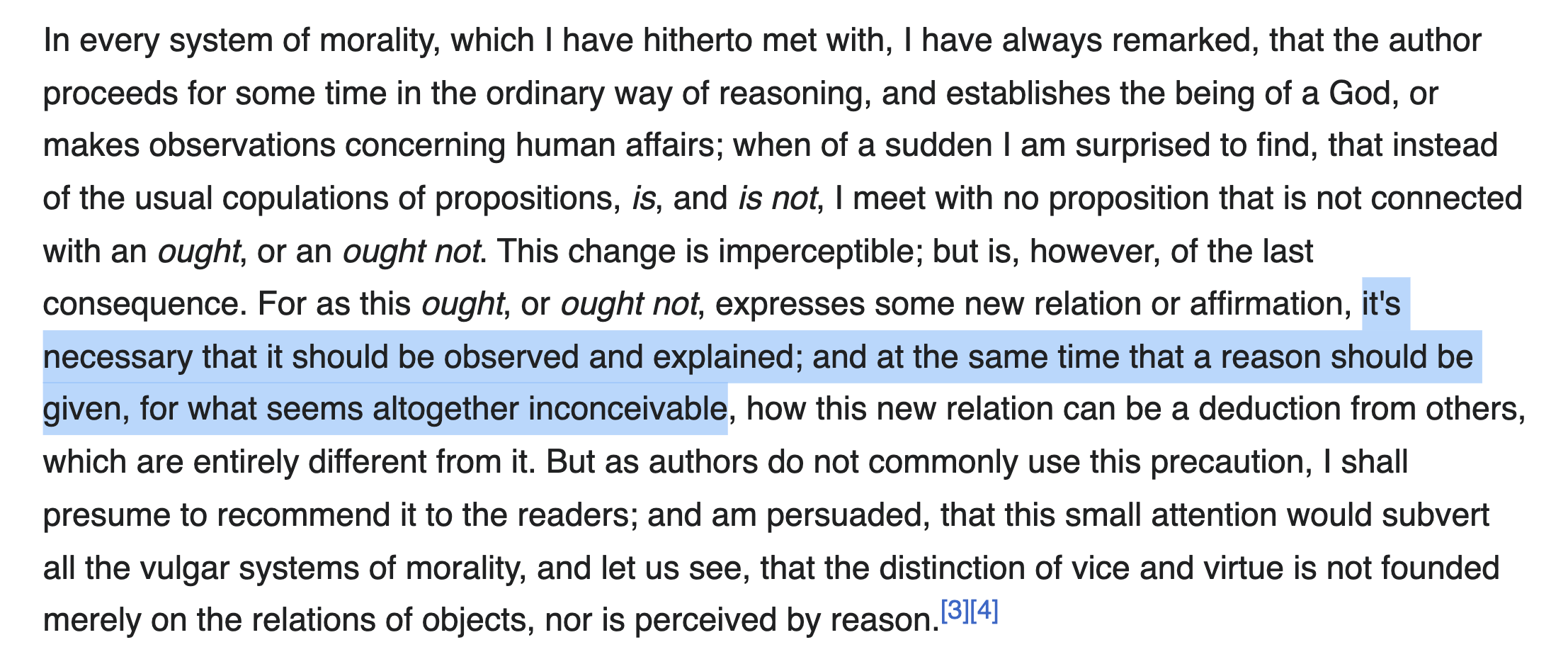
But here, Ågren is saying something much more potent - that we can never pass from fact to value and that the collections of facts and values live in two completely different realms that have no connection.
But this ignores how both ethics and science works. The values can't be derived solely from the facts but they are certainly influenced by them. And likewise, scientific facts can only be elucidated within the framework of certain norms and value judgements.
Here's a different example to show this in action.
At the moment, we are seeing AI develop at an increasingly rapid pace. ChatGPT can now pass a whole bunch of high school exams and the Turing test. But you can also trick it into designing death camps or creating pretty racist and sexist things.
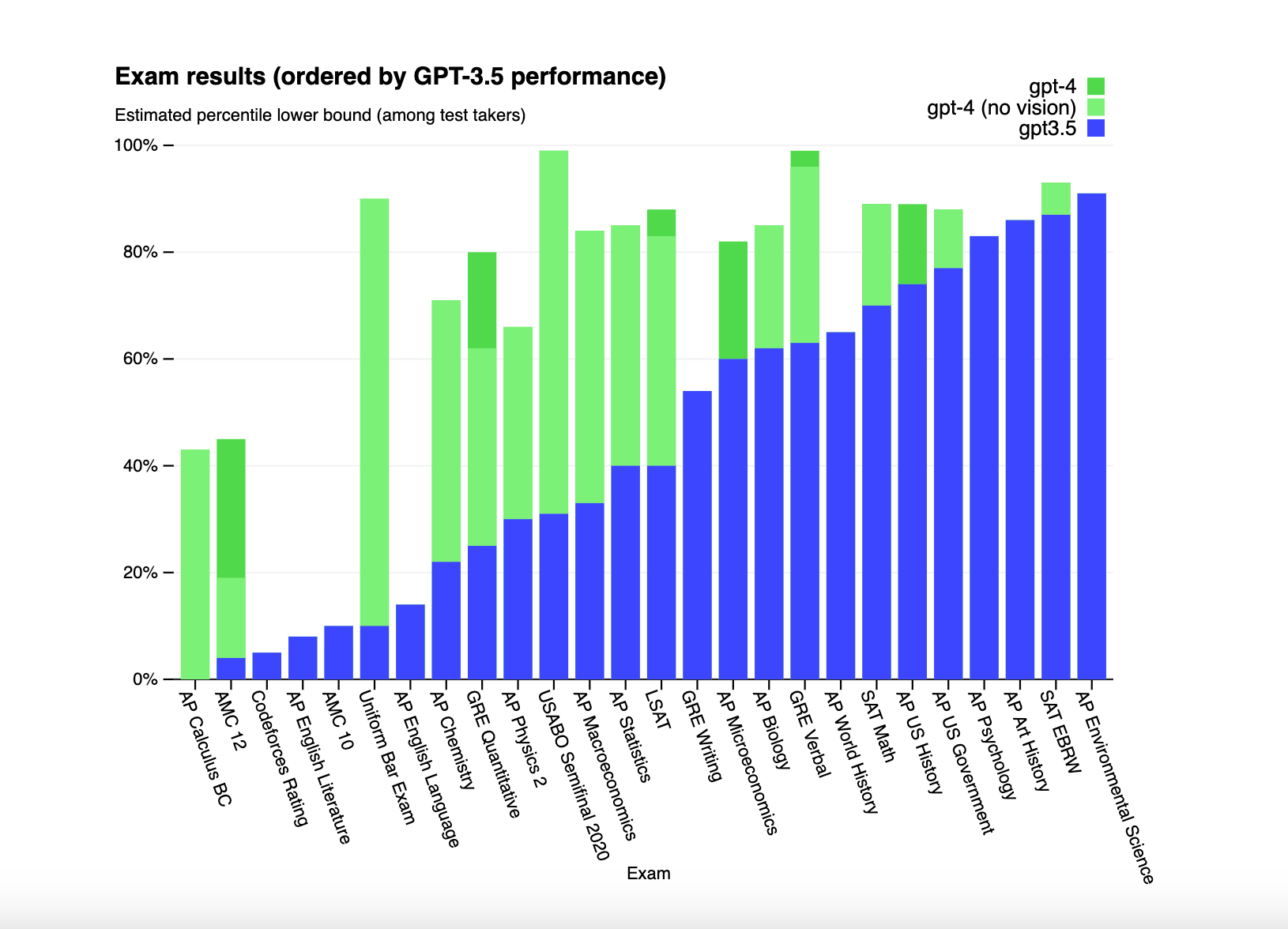
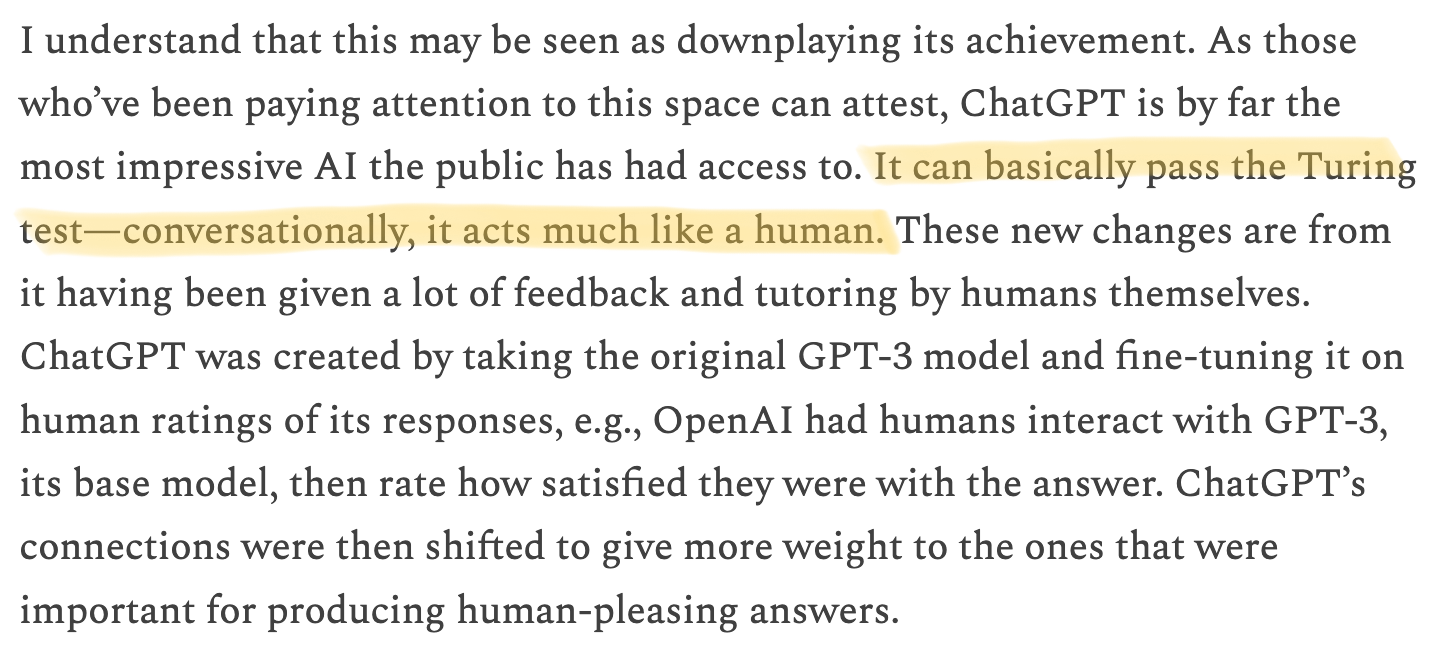

ChatGPT: sorry I'm unable to promote bias
— the keto man (@numetaljacket) December 4, 2022
Also ChatGPT: everybody put your hands together, it's time for the racism rap pic.twitter.com/v9UntAX9ey
So far all of these statements are factual. I've said nothing about whether any of these things are good or bad. (Though the racism rap is pretty scary.) But some potential ought statements could be:
- ChatGPT is bad for society as it reflects institutionalised sexism and racism, or,
- We should slow down the pace of AI research so we can implement appropriate safety and ethical standards,
- AI can only be good for the world as it is technological progress, and new technological innovations always end up benefiting humanity.
According to Hume, none of these value judgements can be directly derived from the facts I gave before, we need extra explanations to get there. But clearly the values are influenced by the facts.
You can't say ChatGPT is bad for society because it’s racist without first knowing that it can do things like make racist raps.
If the facts were instead: ChatGPT is never racist and has plenty of safeguards in place, then the way we'd make value judgements about it would be fundamentally different.
Philosopher and staunch critic of Dawkins, Mary Midgley was keenly aware of this phenomenon of empirical facts shaping our ethics despite Hume's is-ought distinction:
If such a toy [like The Selfish Gene] is handed to moral philosophers, and they aren’t promptly slapped, they will use it for a very long time. They like a little bit of empirical backing, and off they go.
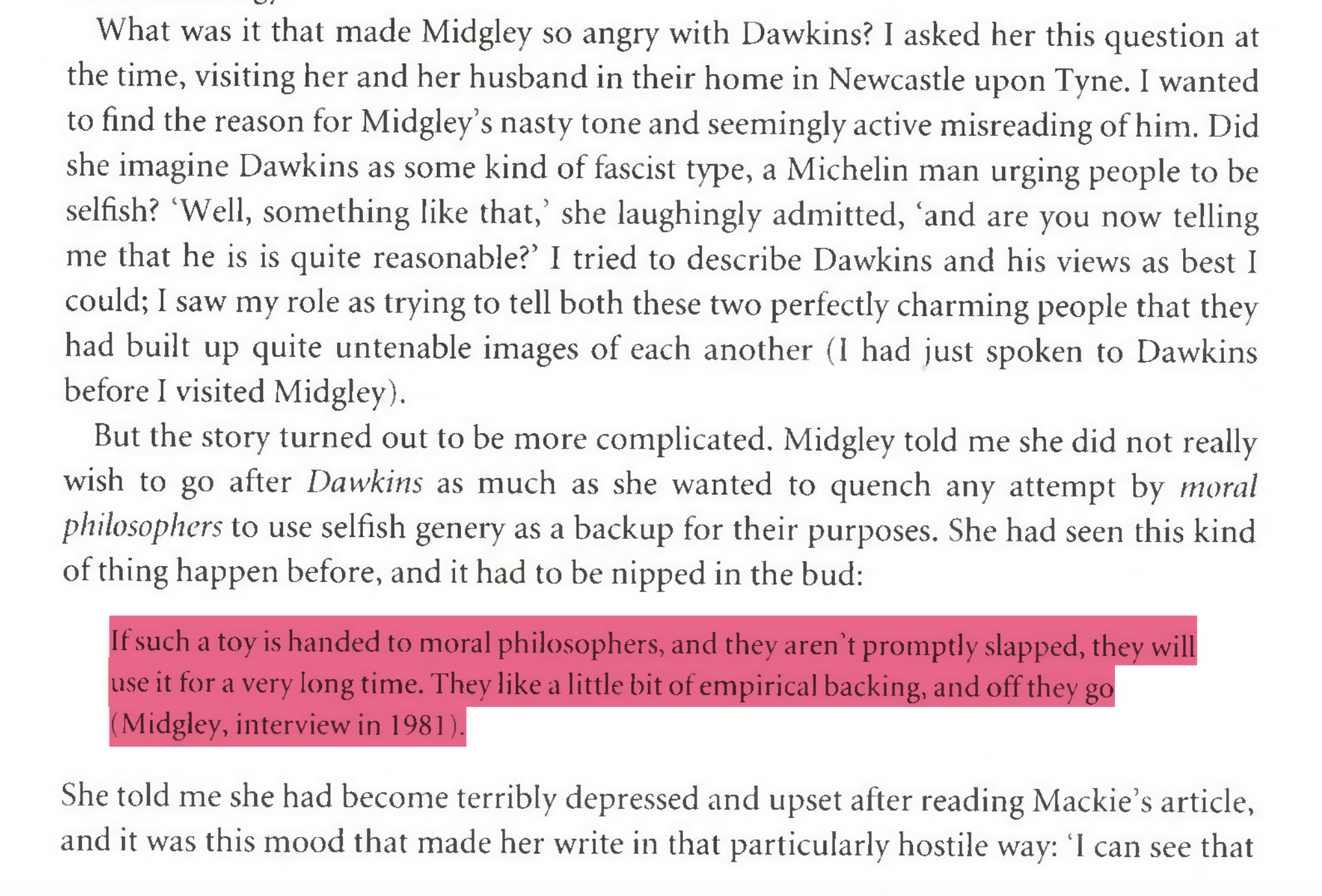
You only need to look at two hugely influential political philosophers to see how our understanding of the natural world shapes how we think it ought to be like.
English philosopher Thomas Hobbes starts with the assumption that nature is brutal and bloody and concludes that we need to strong authorities like states and governments to prevent us from fighting each another to the death.
.jpg/1200px-Thomas_Hobbes_by_John_Michael_Wright_(2).jpg)
Anarchist Peter Kropotkin on the other hand uses examples of crabs, ants, bees, birds and humans helping each other through mutual aid, to show that nature can also be highly cooperative. And counter to Hobbes, he shows how governments and states have actually hindered cooperation, not promoted it. This therefore his supports his broader philosophy of anarcho-communism, calling for the abolition of states entirely.


That these two philosophers came to diametrically opposed conclusions based on different purported facts about nature, goes to show just how much the is’s can affect the ought’s.
So thinking that our knowledge of evolution and our moral outlook can be nicely separated, completely misunderstands how we humans come to see the world.
Hume may be right that logically speaking we can’t get from a fact to a value directly. But humans aren’t logical robots. We argue with emotions and plenty of sociopolitical assumptions about the world. There’s no getting away from that. The science can never be separated from the politics.
Dawkins admits that he overlooked the possibility that people would use The Selfish Gene to promote fascism and called it "annoying" that kin selection was being "dragged down to the ephemeral level of human politics."
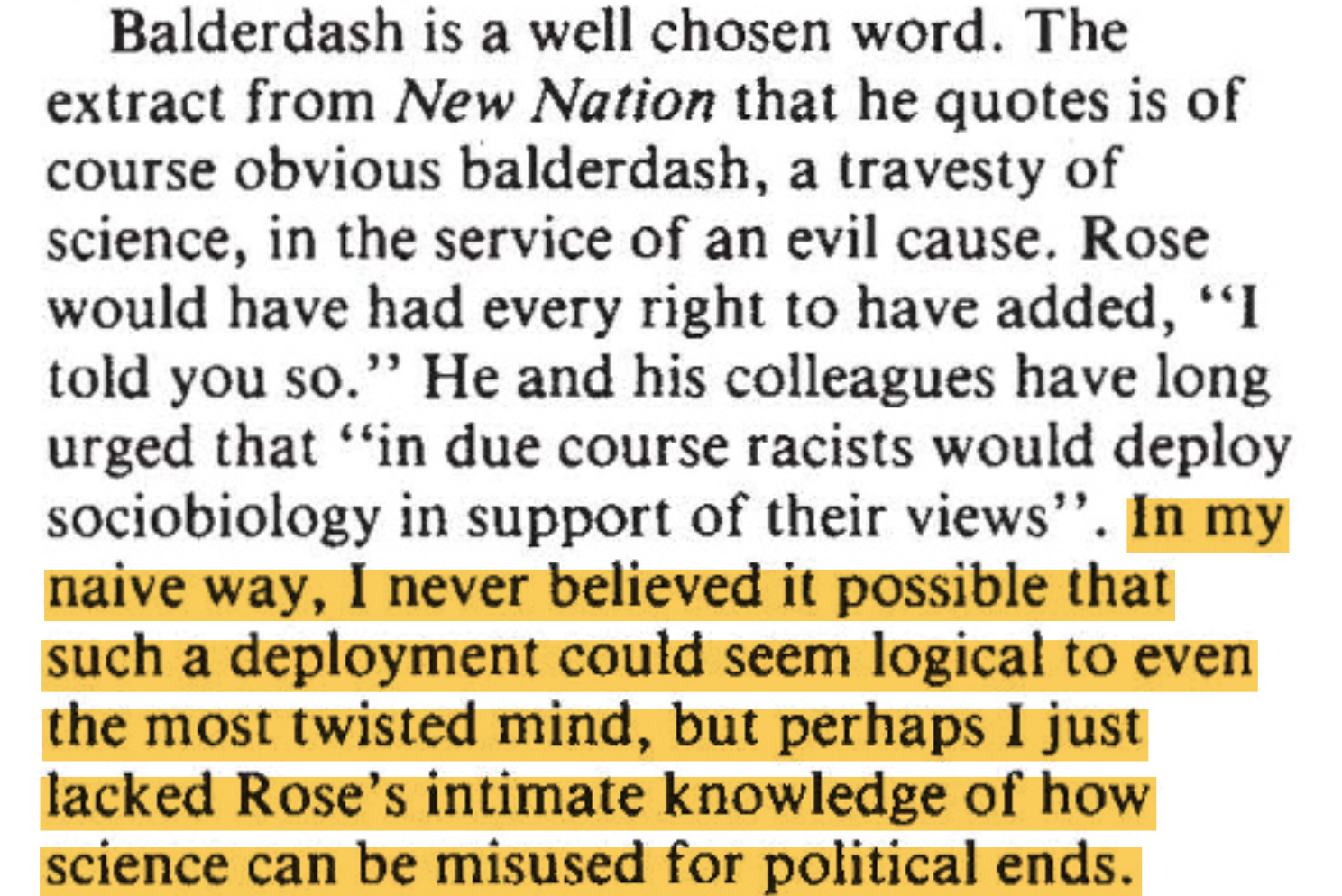
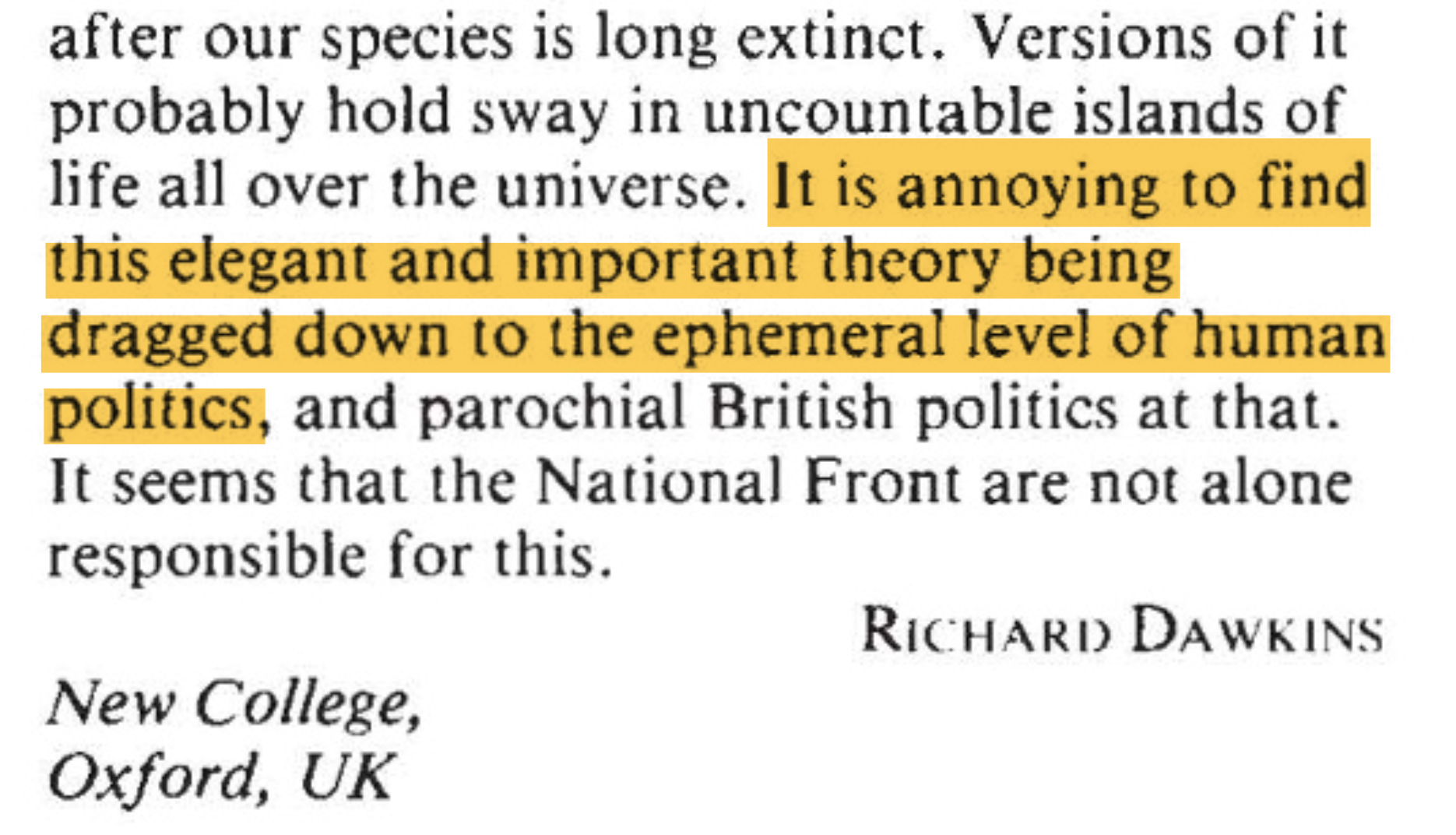
But again, Dawkins is trying to separate the inseparable here. If you wish to just do the science and deal with the politics later, other people will come and join it all back together for you, and those people could well be Nazis.

Today, Dawkins continues to try to do science while ignoring the political implications: toying with the idea of eugenics on Twitter and saying "facts ignore ideology."
It’s one thing to deplore eugenics on ideological, political, moral grounds. It’s quite another to conclude that it wouldn’t work in practice. Of course it would. It works for cows, horses, pigs, dogs & roses. Why on earth wouldn’t it work for humans? Facts ignore ideology.
— Richard Dawkins (@RichardDawkins) February 16, 2020
As well as re-emphasising the sex binary, questioning trans identities, and defending transphobes. And when people inevitably connected his statements to fascism, he was once again Pikachu face shocked that his "scientific" words could ever have been interpreted politically.
I do not intend to disparage trans people. I see that my academic “Discuss” question has been misconstrued as such and I deplore this. It was also not my intent to ally in any way with Republican bigots in US now exploiting this issue .
— Richard Dawkins (@RichardDawkins) April 12, 2021
I'll say it once again before ending the video with a brilliant quote from The Dialectical Biologist. Science can never be separated from politics.
We believe that science, in all its senses, is a social process that both causes and is caused by social organisation. To do science is to be a social actor engaged, whether one likes it or not, in political activity. The denial of the interpenetration of the scientific and the social is itself a political act, giving support to social structures that hide behind scientific objectivity to perpetuate … exploitation, racism, elitism [and] colonialism. … Of course the speed of light is the same under socialism and capitalism. But whether the cause of tuberculosis is said to be [bacteria] or the capitalist exploitation of workers, whether the death rate from cancer is best reduced by studying oncogenes or by seizing control of factories — these questions can be decided objectively, only within the framework of certain sociopolitical assumptions.
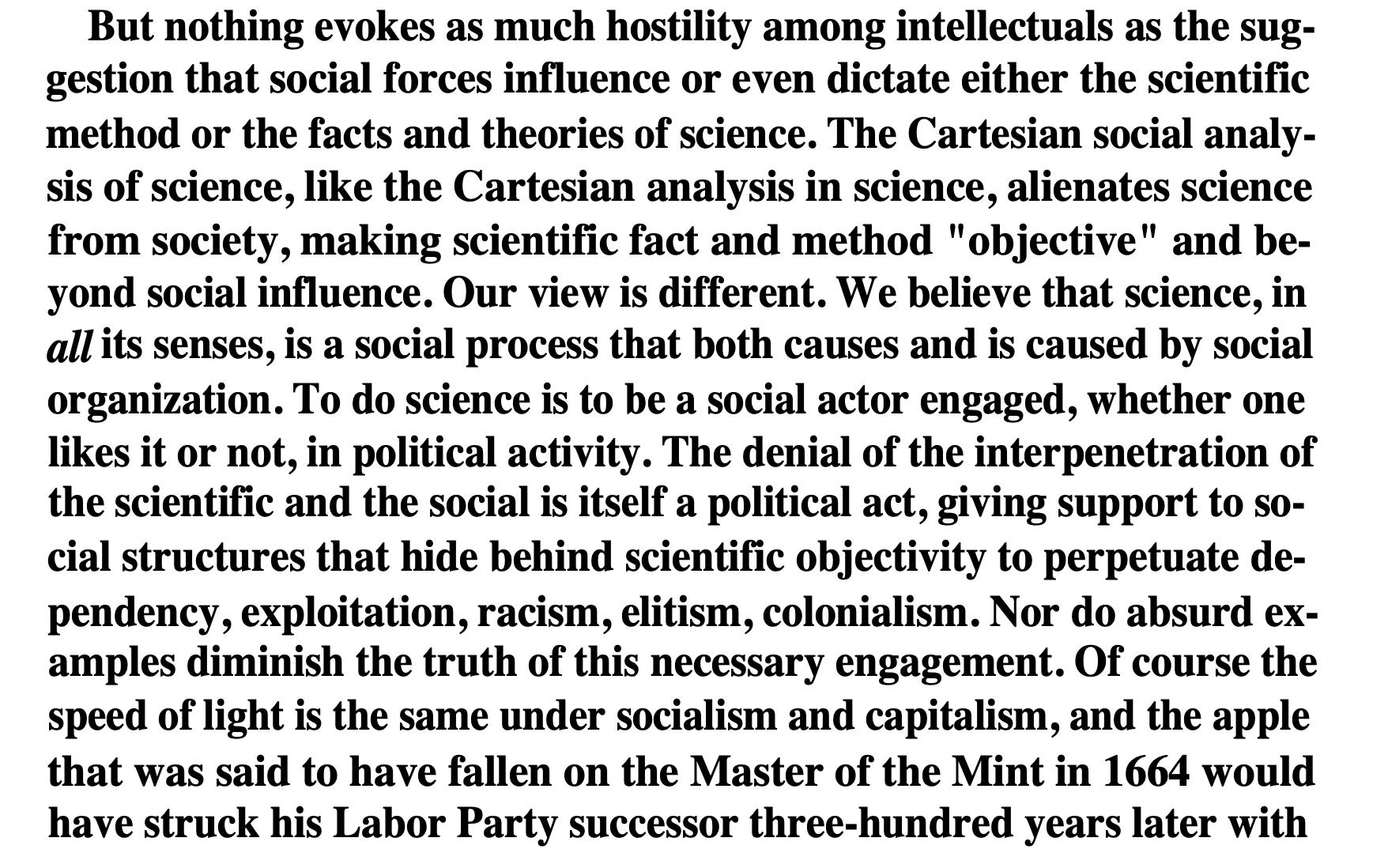
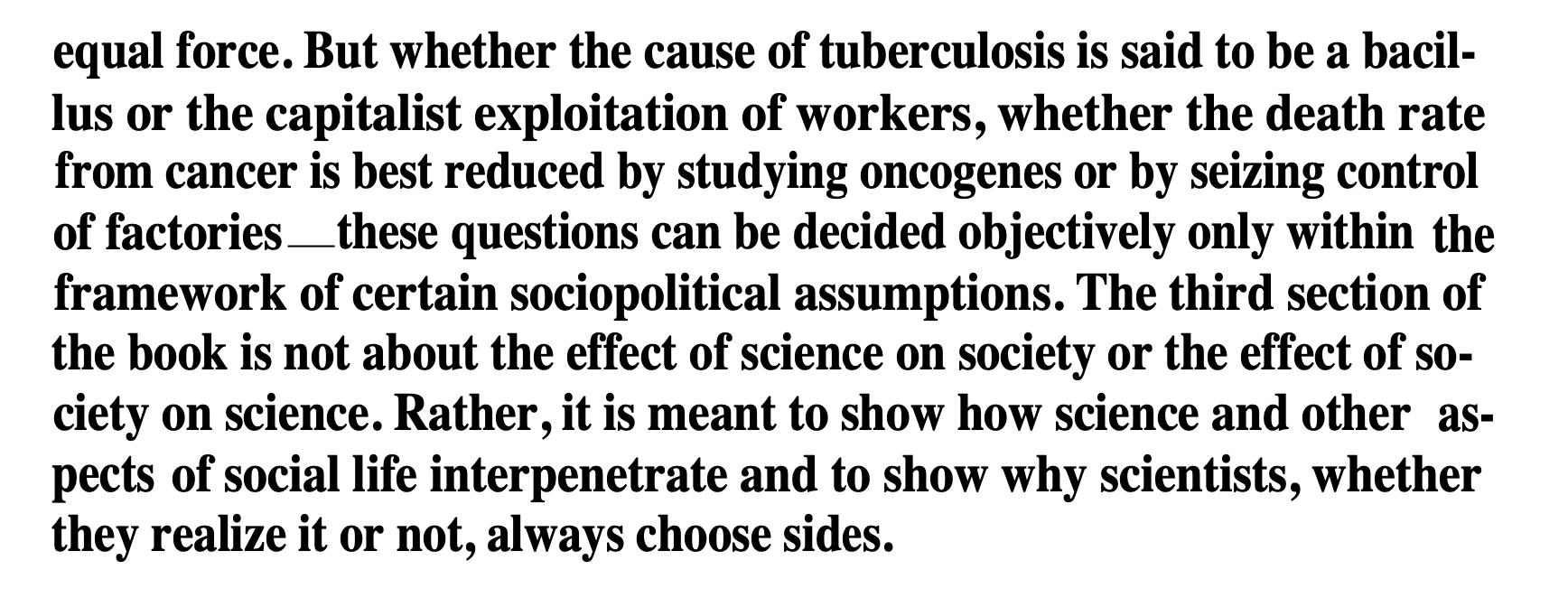
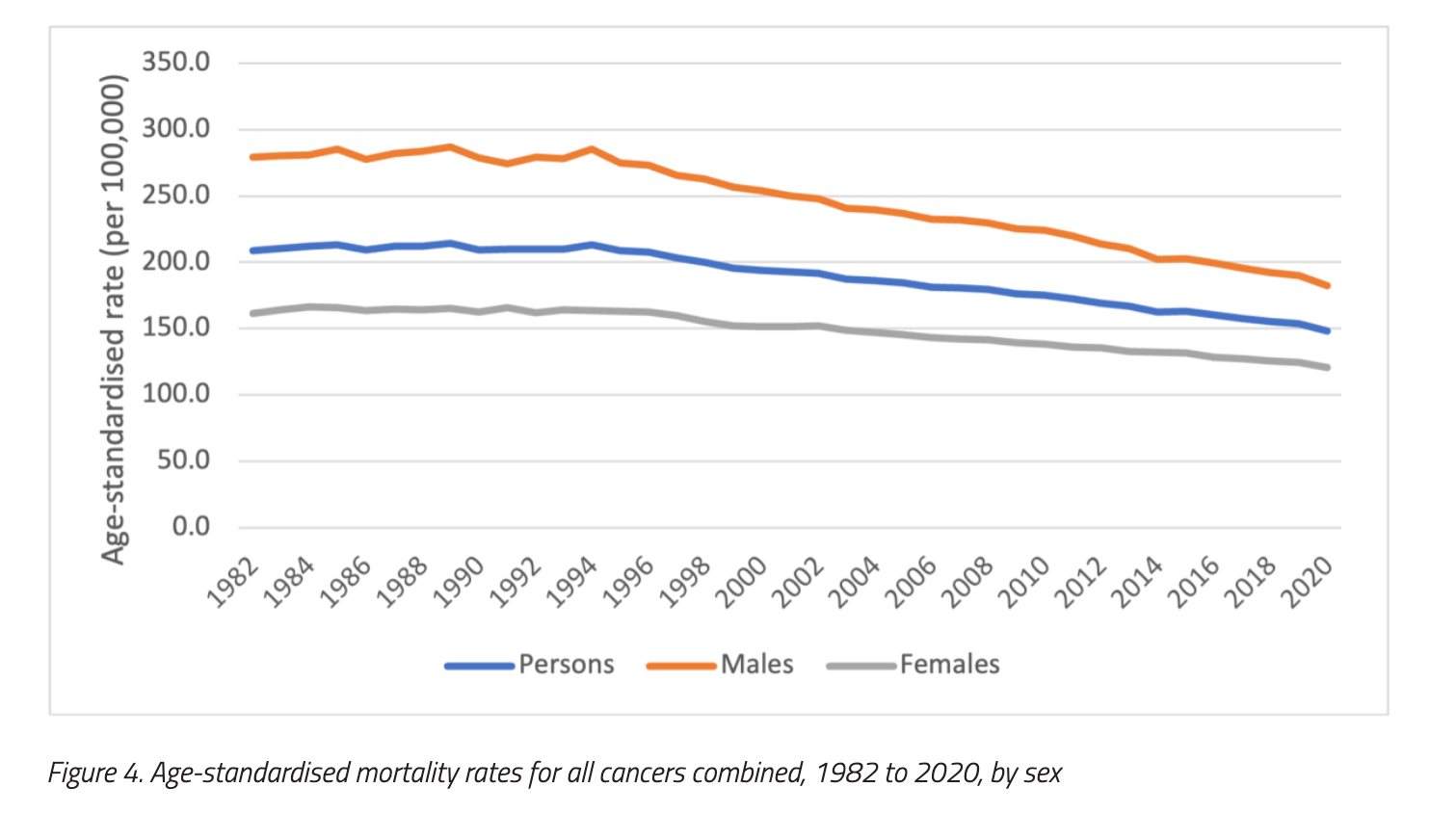
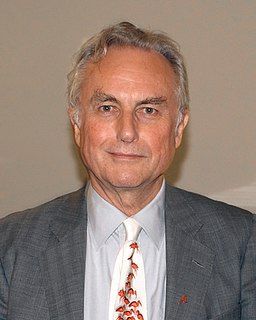









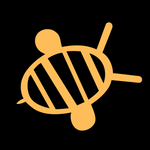
Member discussion: